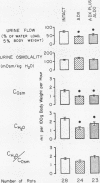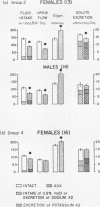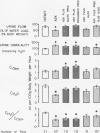Abstract
In order to determine whether or not antidiuretic hormone (ADH) is essential to the inhibition of an acute water diuresis in adrenal insufficiency, the response to oral water loads was tested in rats with hereditary hypothalamic diabetes insipidus (DI) which lack ADH. It was found that 60 min after water loads of 3 or 5% of body weight urine flow was significantly lower and urine osmolality significantly higher in adrenalectomized DI rats than in the same DI rats before removal of their adrenal glands.
The efficacy of gluco- and mineralocorticoids in reversing the inhibition was then determined in the same adrenalectomized DI rats. Prednisolone alone, administered either acutely or chronically, restored the response in urine flow to that seen in the same rats before adrenalectomy, but failed to correct the defect in urinary dilution. Aldosterone when given alone tended to correct the diluting ability but not the response in urine flow. When these two adrenal cortical hormones were given simultaneously, both the urine flow and urine osmolality were nearly identical to what they had been in the same DI rats before adrenalectomy.
These studies strongly suggest (a) that ADH is not essential to the inhibition of an acute water diuresis in adrenal insufficiency, although it may abet the inhibition in individuals without diabetes insipidus, which can elaborate ADH; and (b) that both gluco- and mineralocorticoids are required in adrenal insufficiency in order to fully restore the water diuresis as judged by the dual criteria of urine flow and urine osmolality.
Full text
PDF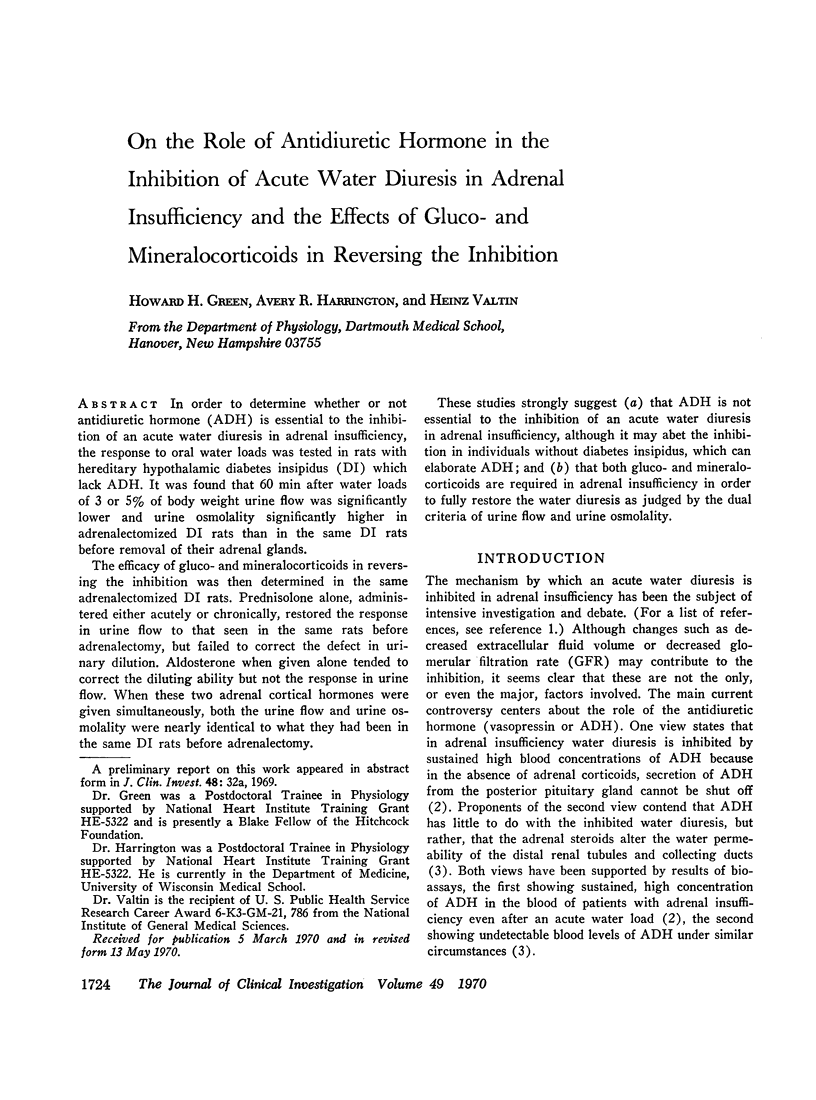
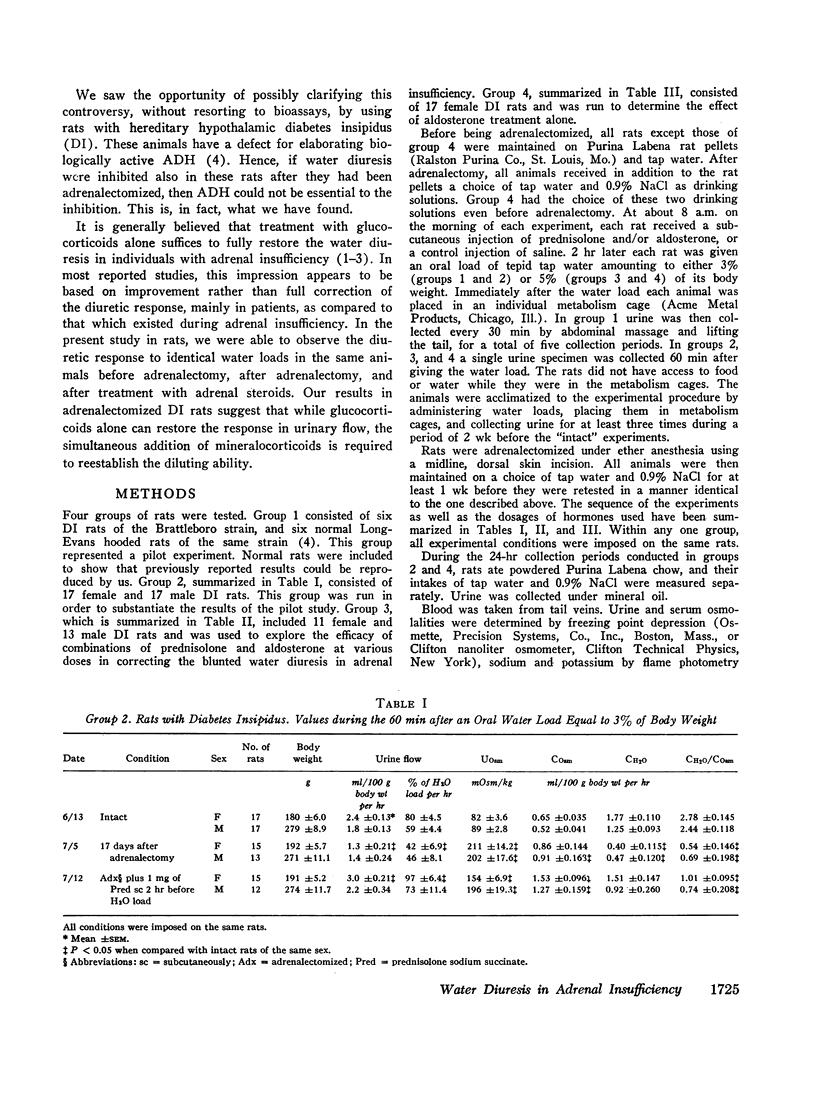
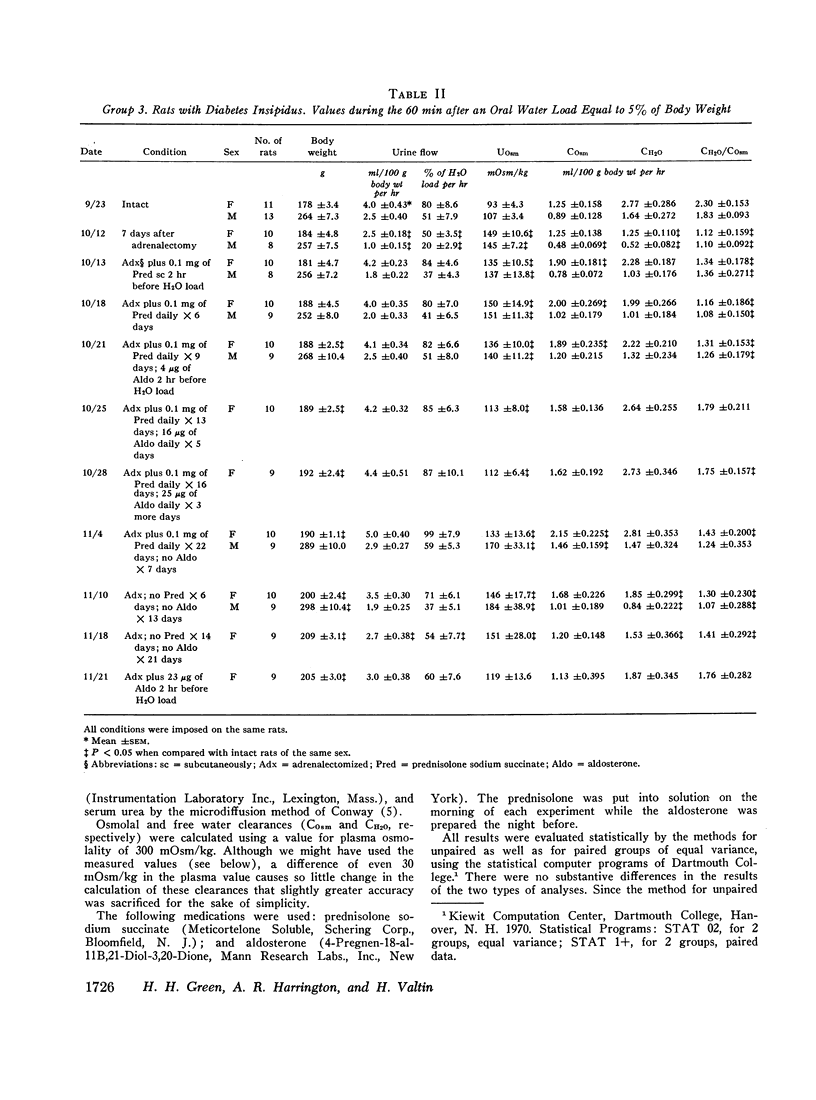
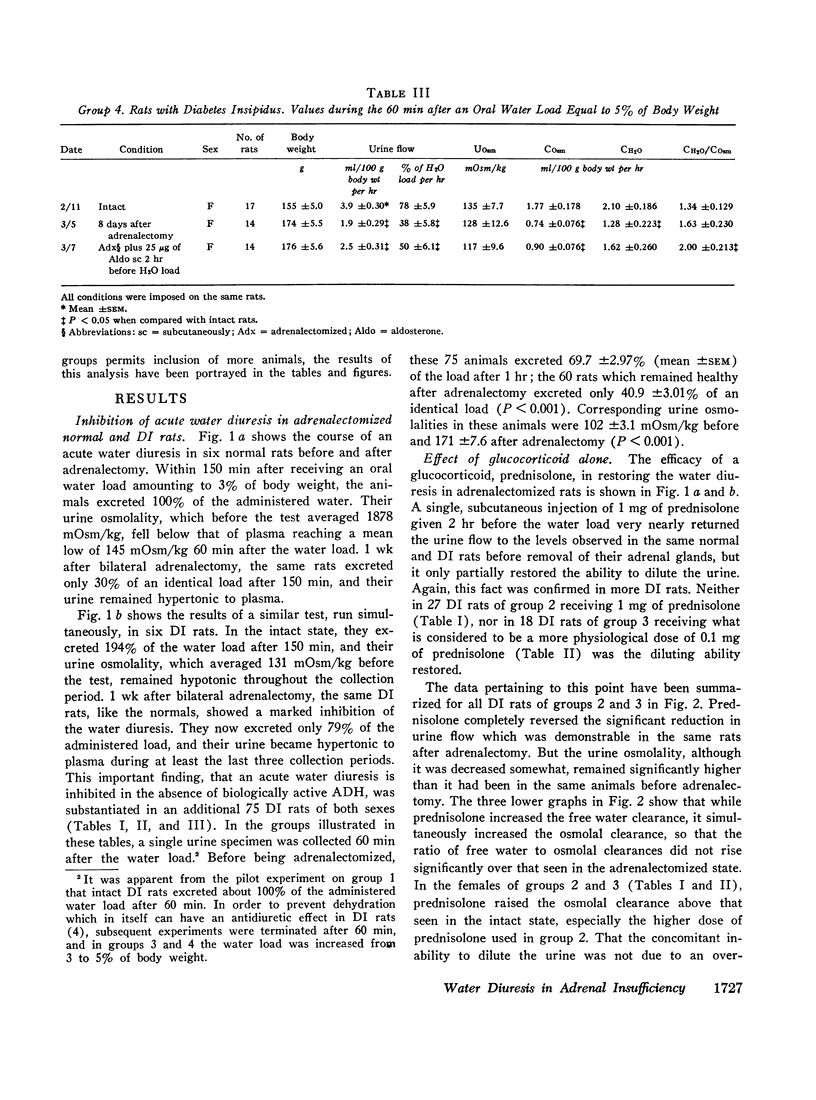
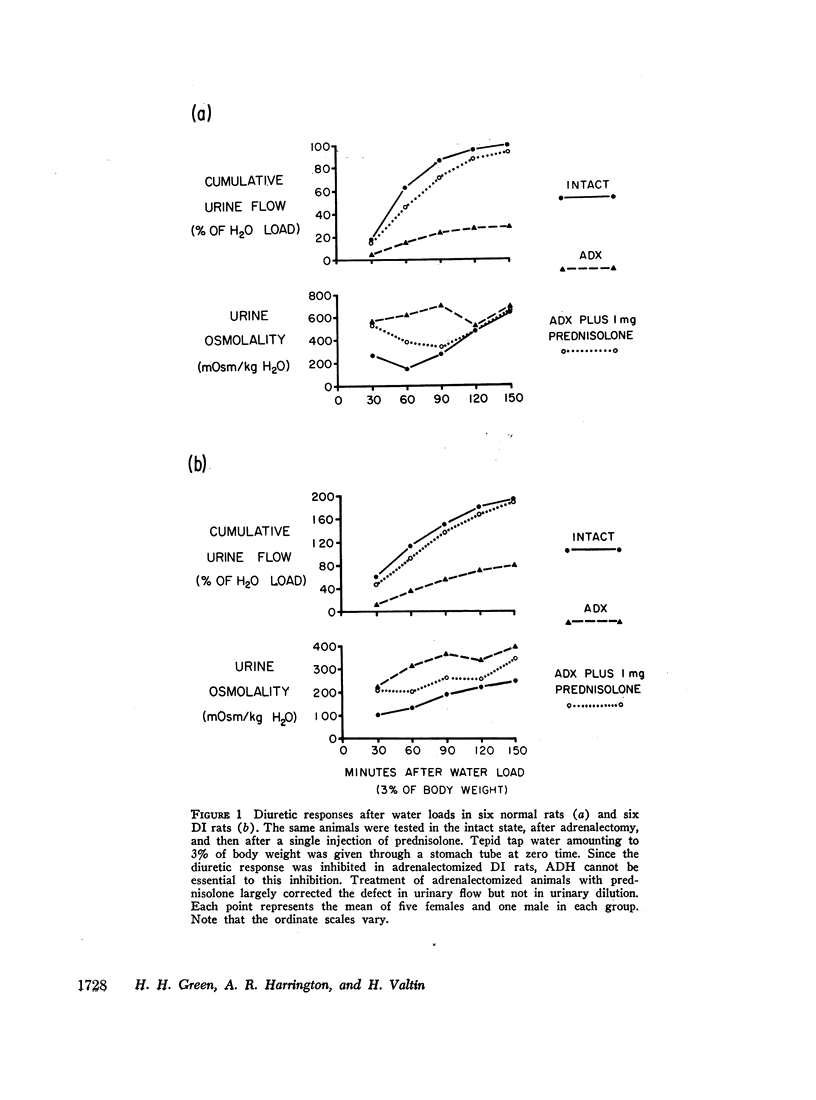
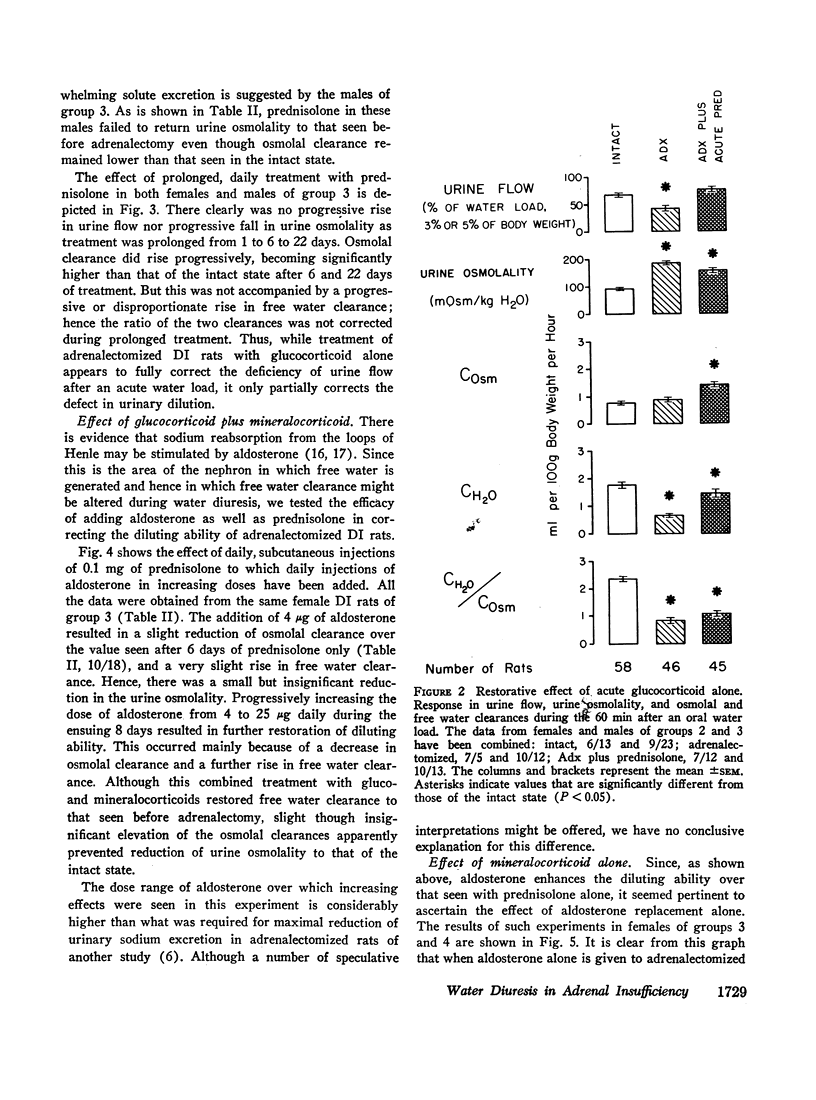
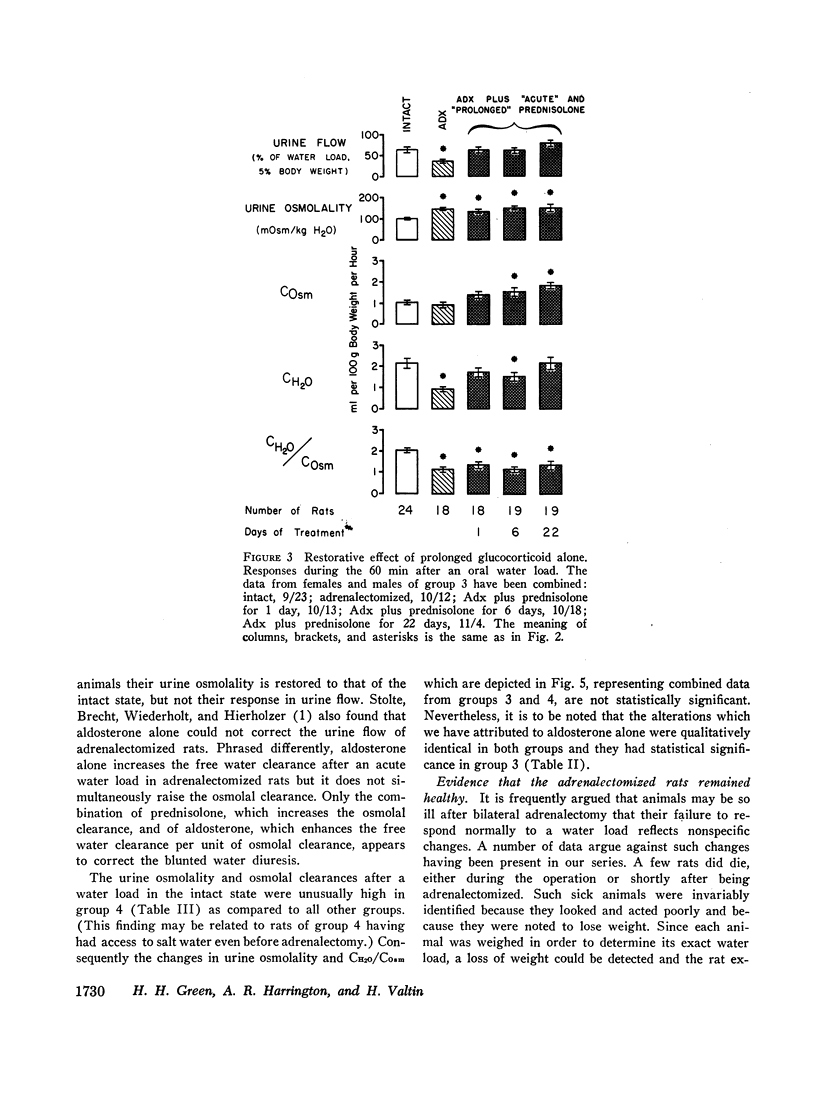
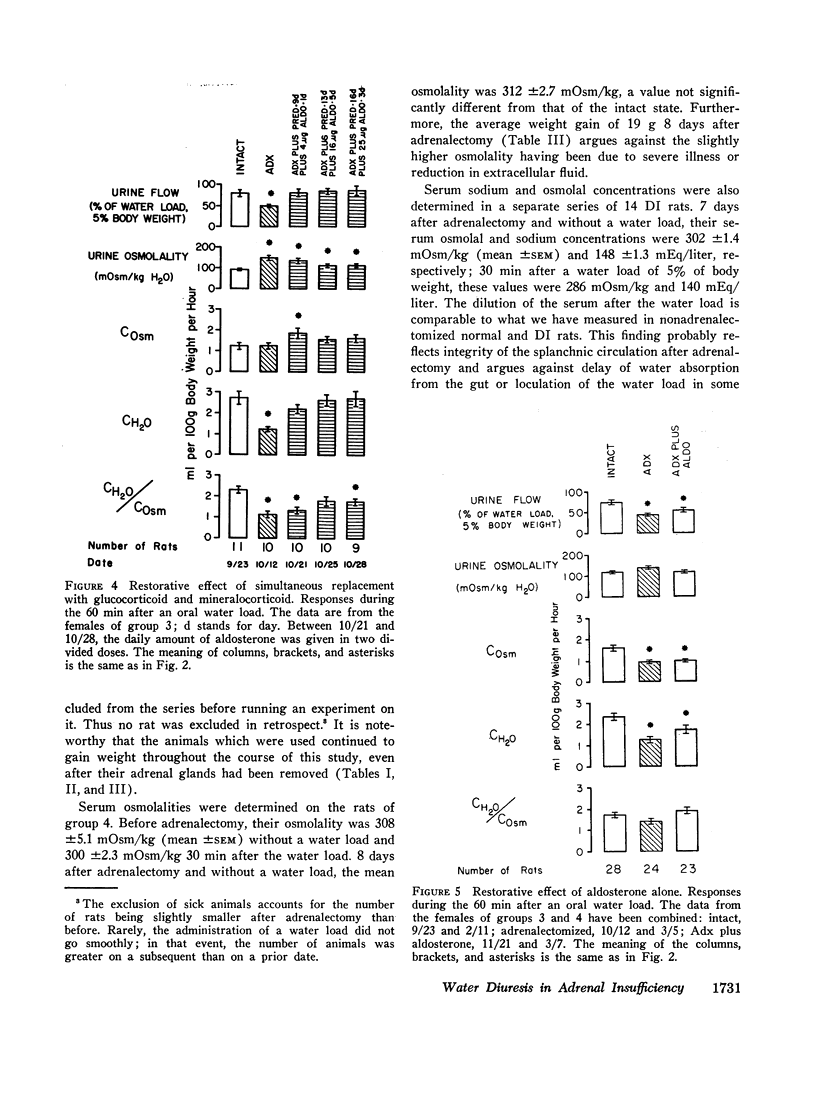
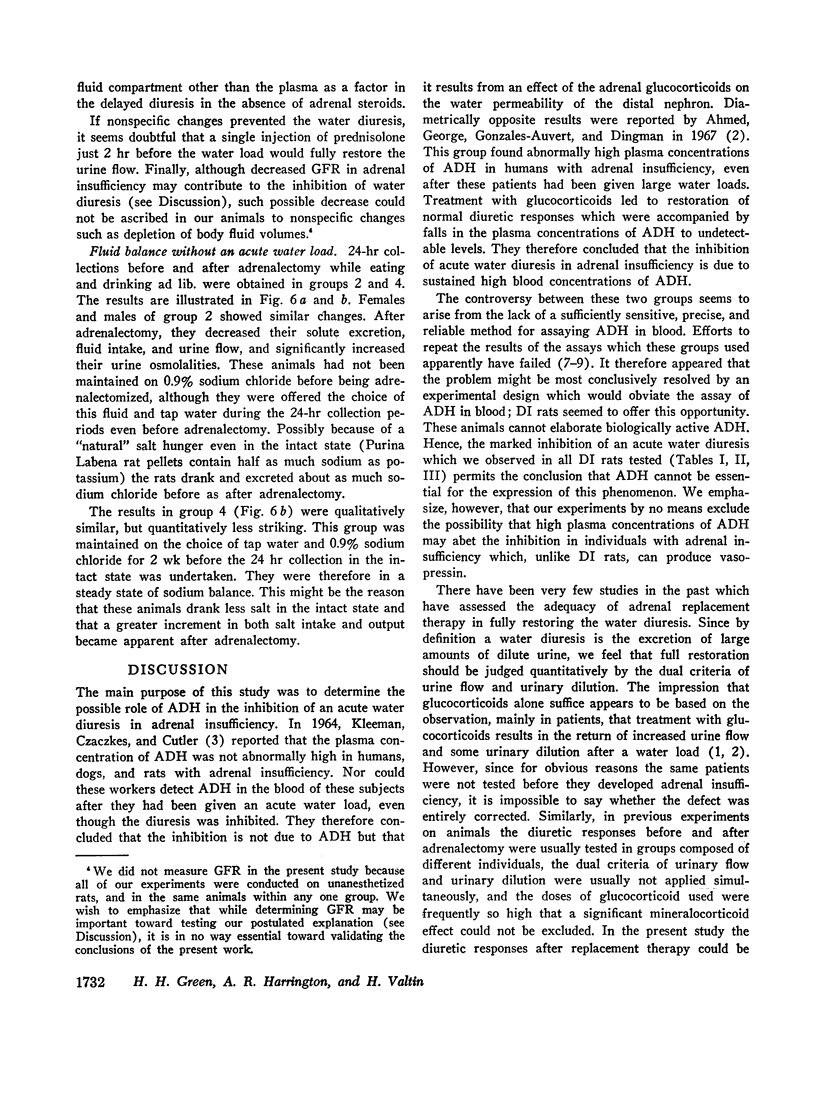
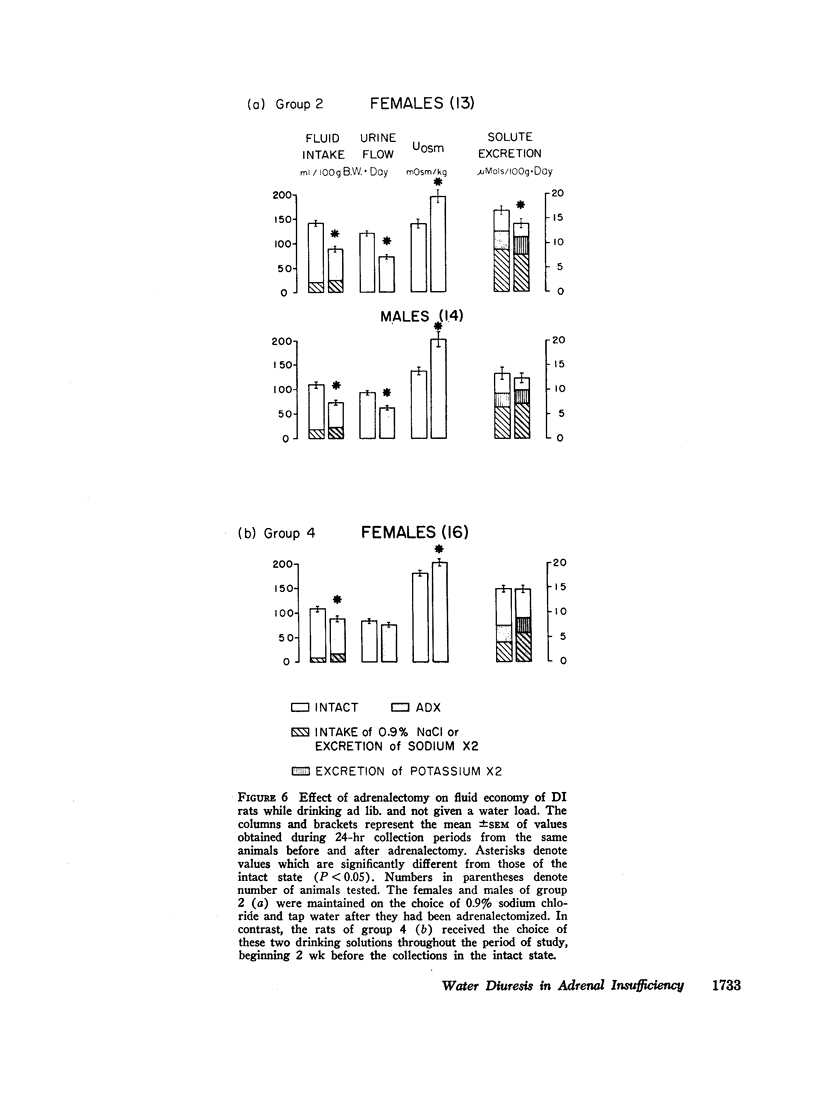
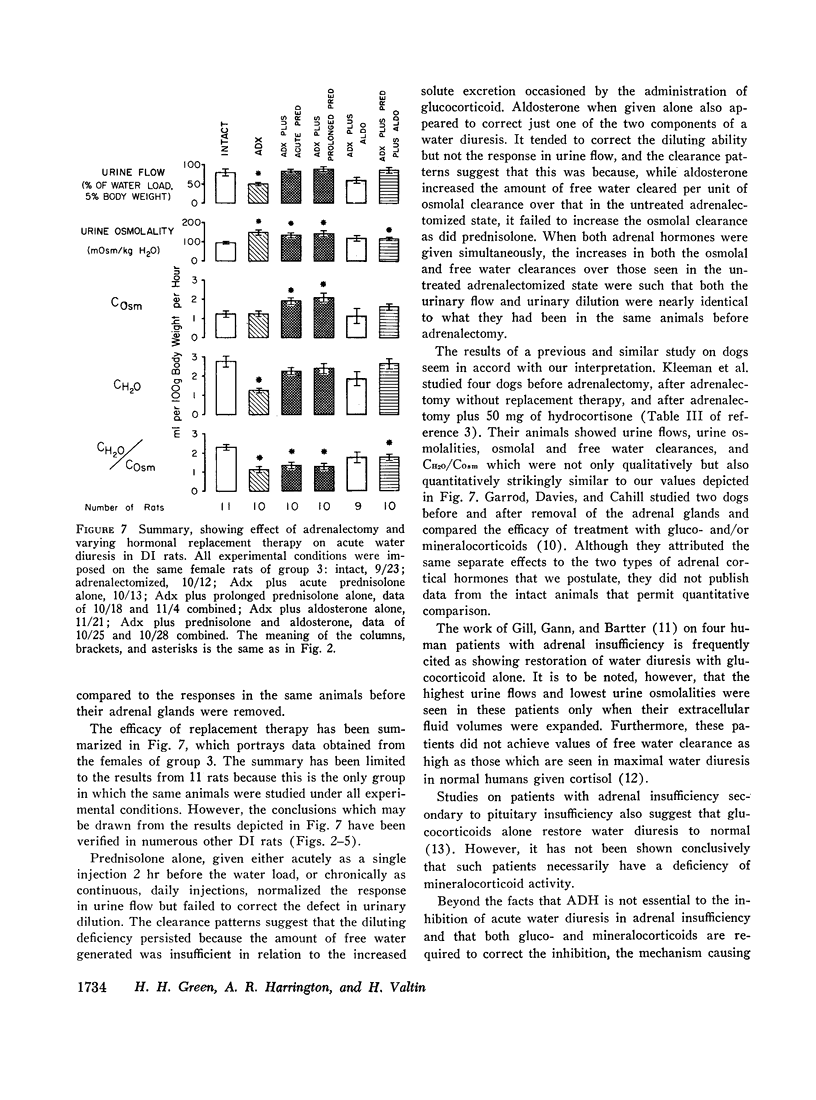
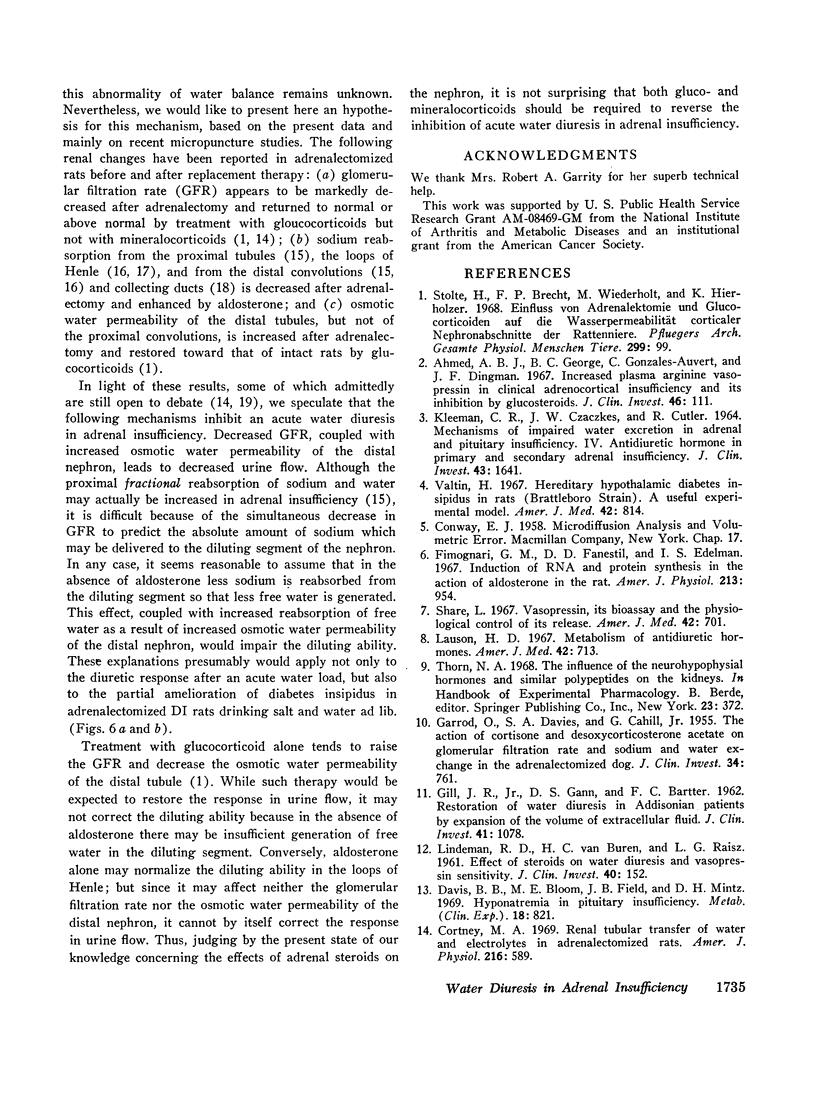
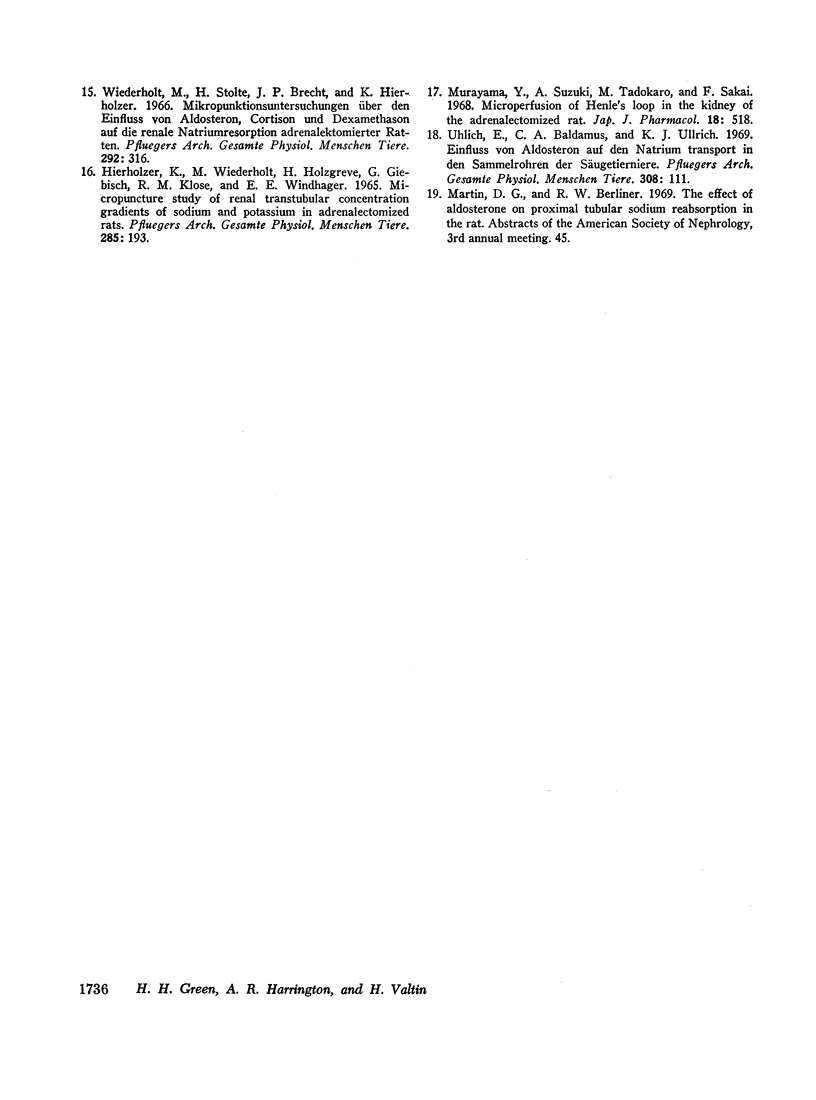
Images in this article
Selected References
These references are in PubMed. This may not be the complete list of references from this article.
- Ahmed A. B., George B. C., Gonzalez-Auvert C., Dingman J. F. Increased plasma arginine vasopressin in clinical adrenocortical insufficeincy and its inhibition by glucosteroids. J Clin Invest. 1967 Jan;46(1):111–123. doi: 10.1172/JCI105504. [DOI] [PMC free article] [PubMed] [Google Scholar]
- Cortney M. A. Renal tubular transfer of water and electrolytes in adrenalectomized rats. Am J Physiol. 1969 Mar;216(3):589–598. doi: 10.1152/ajplegacy.1969.216.3.589. [DOI] [PubMed] [Google Scholar]
- Davis B. B., Bloom M. E., Field J. B., Mintz D. H. Hyponatremia in pituitary insufficiency. Metabolism. 1969 Oct;18(10):821–832. doi: 10.1016/0026-0495(69)90057-2. [DOI] [PubMed] [Google Scholar]
- Fimognari G. M., Fanestil D. D., Edelman I. S. Induction of RNA and protein synthesis in the action of aldosterone in the rat. Am J Physiol. 1967 Oct;213(4):954–962. doi: 10.1152/ajplegacy.1967.213.4.954. [DOI] [PubMed] [Google Scholar]
- GARROD O., DAVIES S. A., CAHILL G., Jr The action of cortisone and desoxycorticosterone acetate on glomerular filtration rate and sodium and water exchange in the adrenalectomized dog. J Clin Invest. 1955 Jun;34(6):761–776. doi: 10.1172/JCI103131. [DOI] [PMC free article] [PubMed] [Google Scholar]
- GILL J. R., Jr, GANN D. S., BARTTER F. C. Restoration of water diuresis in addisonian patients by expansion of the volume of extracellular fluid. J Clin Invest. 1962 May;41:1078–1085. doi: 10.1172/JCI104558. [DOI] [PMC free article] [PubMed] [Google Scholar]
- KLEEMAN C. R., CZACZKES J. W., CUTLER R. MECHANISMS OF IMPAIRED WATER EXCRETION IN ADRENAL AND PITUITARY INSUFFICIENCY. IV. ANTIDIURETIC HORMONE IN PRIMARY AND SECONDARY ADRENAL INSUFFICIENCY. J Clin Invest. 1964 Aug;43:1641–1648. doi: 10.1172/JCI105039. [DOI] [PMC free article] [PubMed] [Google Scholar]
- LINDEMAN R. D., VAN BUREN H. C., RAISZ L. G. Effects of steroids on water diuresis and vasopressin sensitivity. J Clin Invest. 1961 Jan;40:152–158. doi: 10.1172/JCI104229. [DOI] [PMC free article] [PubMed] [Google Scholar]
- Lauson H. D. Metabolism of antidiuretic hormones. Am J Med. 1967 May;42(5):713–744. doi: 10.1016/0002-9343(67)90091-5. [DOI] [PubMed] [Google Scholar]
- Murayama Y., Suzuki A., Tadokoro M., Sakai F. Microperfusion of Henle's loop in the kidney of the adrenalectomized rat. Jpn J Pharmacol. 1968 Dec;18(4):518–519. doi: 10.1254/jjp.18.518. [DOI] [PubMed] [Google Scholar]
- Share L. Vasopressin, its bioassay and the physiological control of its release. Am J Med. 1967 May;42(5):701–712. doi: 10.1016/0002-9343(67)90090-3. [DOI] [PubMed] [Google Scholar]
- Stolte H., Brecht J. P., Wiederholt M., Hierholzer K. Einfluss von Adrenalektomie und Glucocorticoiden auf die Wasserpermeabilität corticaler Nephronabschnitte der Rattenniere. Pflugers Arch Gesamte Physiol Menschen Tiere. 1968;299(2):99–127. [PubMed] [Google Scholar]
- Uhlich E., Baldamus C. A., Ullrich K. J. Einfluss von Aldosteron auf den Natriumtransport in den Sammelrohren der Säugetierniere. Pflugers Arch. 1969;308(2):111–126. doi: 10.1007/BF00587019. [DOI] [PubMed] [Google Scholar]
- Valtin H. Hereditary hypothalamic diabetes insipidus in rats (Brattleboro strain). A useful experimental model. Am J Med. 1967 May;42(5):814–827. doi: 10.1016/0002-9343(67)90098-8. [DOI] [PubMed] [Google Scholar]
- Wiederholt M., Stolte H., Brecht J. P., Hierholzer K. Mikropunktionsuntersuchungen über den Einfluss von Aldosteron, Cortison und Dexamethason auf die renale Natriumresorption adrenalektomierter Ratten. Pflugers Arch Gesamte Physiol Menschen Tiere. 1966;292(4):316–333. [PubMed] [Google Scholar]




